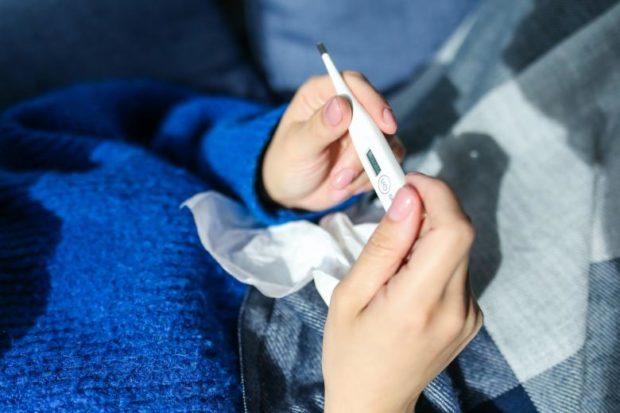Most long COVID-19 patients will recover, but those with severe symptoms should seek help–experts

Most Covid-19 patients will recover from their symptoms within four weeks after their infection. PHOTO: PEXELS via The Straits Times/Asia News Network
SINGAPORE — Most Covid-19 patients who continue to suffer symptoms after recovering from the disease – a condition known as long Covid – will recover naturally with time, but experts say a small group that continues to experience severe symptoms should seek medical help.
Dr Barnaby Young, head of the Singapore Infectious Disease Clinical Research Network at the National Centre for Infectious Diseases (NCID), said the main cause of long Covid is a severe Covid-19 infection.
“Protecting oneself against this is the most important thing to do – and this can be done by getting vaccinated and boosters,” he said.
Dr Edgar Tay, consultant and cardiologist at the Asian Heart & Vascular Centre in Mount Elizabeth Hospital, agreed.
In addition to severe infection, he cited a recent study that highlighted four key factors that increase the risk of long Covid: The viral load during infection, the presence of diabetes, the presence of auto-antibodies, and the reactivation of the Epstein-Barr virus in some patients.
Noting that some develop long Covid despite being vaccinated, Dr Young said the reason for this is not clear but is likely due to a combination of genetic, microbiome and environmental factors.
He said that most Covid-19 patients will recover from their symptoms within four weeks after their infection.
Some others may find their symptoms persisting for four to 12 weeks, with an even smaller number having symptoms that go beyond this period.
Dr Young expects the proportion of patients who experience long Covid from the recent Omicron surge to be low. This is because most of them were infected after getting vaccinated and also because Omicron tends to produce less severe infections.
However, Dr Young said that patients should seek help if they have symptoms that may suggest a serious medical condition, including chest pain, breathlessness and persistent fever.
“Most symptoms from long Covid are not so alarming, and it is okay to self-monitor these symptoms. However, if they are interfering with your ability to do your usual activities, if they are not improving or if you are otherwise concerned, then it is best to see your local GP or polyclinic for advice,” he said.
Dr Tay said that three groups of patients ought to go for post-Covid-19 evaluation -those who have persistent symptoms, or develop new or worsening symptoms after recovering; patients whose symptoms impact them in ways such as affecting their sleep; and those who are planning to start strenuous exercise if they have chest pain or tightness, breathlessness, palpitations or light-headedness.
Agreeing, Dr Adrian Chan, a respiratory specialist at Respiratory Medical Associates in Mount Elizabeth Novena Hospital, added that patients with a pulse oximeter reading of 94 per cent and below should also seek medical advice, as this may be a sign of residual issues in their lower respiratory tract.
Both doctors said they have seen an increase in patients seeking help for long Covid over the past few weeks, which they did not observe during previous waves of infection.
Some of the more common symptoms these patients present include persistent cough, running nose, feeling faint, palpitations and chest pain.
They added that in light of the increasing number of such patients, Gleneagles Hospital, Mount Elizabeth Hospital and Mount Elizabeth Novena Hospital have launched a post-Covid-19 evaluation for patients to help ensure a smoother recovery.
Among other things, the evaluation will include a consultation with a respiratory physician, a CT lung scan, and an electrocardiogram.
Professor Dale Fisher, senior consultant with the National University Hospital’s Division of Infectious Diseases, who is not affiliated with the three hospitals, said there is a lot of merit in such an evaluation.
He added that there is still a lot to learn about the long-term effects of Covid-19, and that if the information from the evaluations is collated as research, it would be good to analyze it to find out more about long Covid.
RELATED STORIES
Long haul COVID-19 patients find hope in recovery clinics
‘Long COVID’ possible in 10- 15% of infected persons — DOH
‘Long COVID’ from Omicron coronavirus variant possible, say experts
‘Long COVID’ may affect multiple parts of body and mind, doctors say
For more news about the novel coronavirus click here.
What you need to know about Coronavirus.
For more information on COVID-19, call the DOH Hotline: (02) 86517800 local 1149/1150.
The Inquirer Foundation supports our healthcare frontliners and is still accepting cash donations to be deposited at Banco de Oro (BDO) current account #007960018860 or donate through PayMaya using this link.